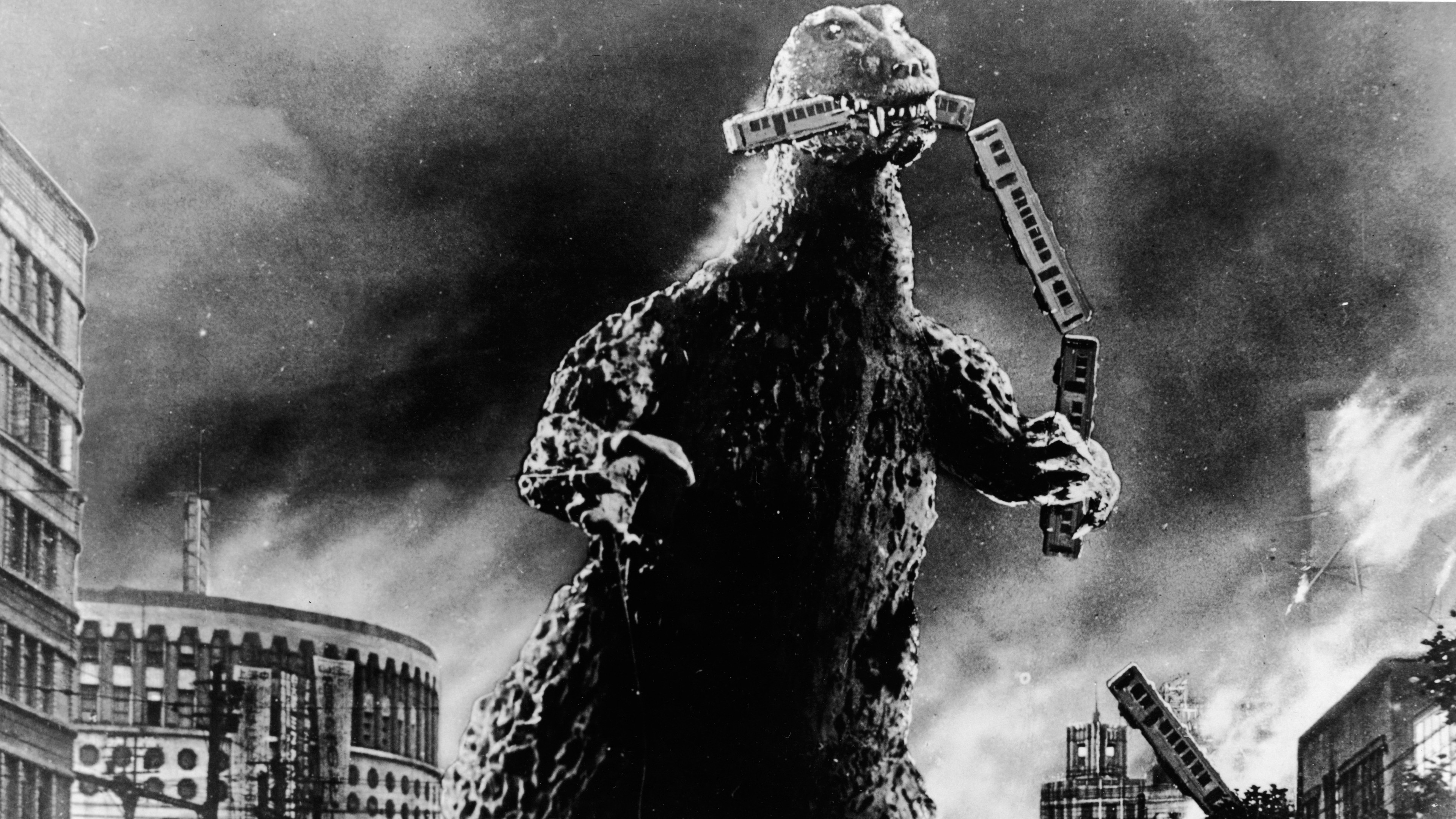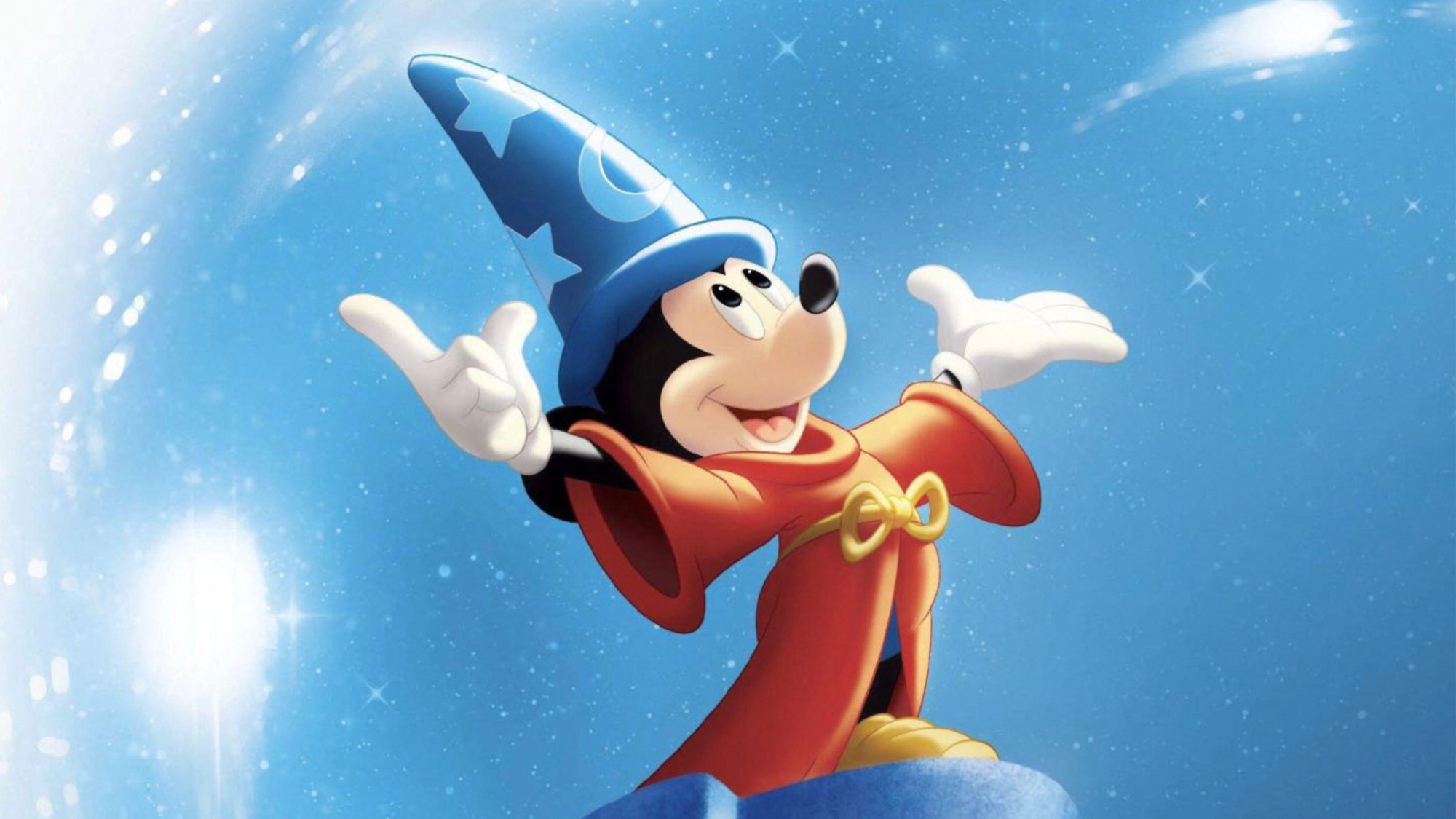The monstrous history and longevity of Godzilla
Why the legendary king of the monsters still resonates after nearly 70 years


A free daily email with the biggest news stories of the day – and the best features from TheWeek.com
You are now subscribed
Your newsletter sign-up was successful
Nearly 70 years later, the king of the monsters still reigns supreme.
Godzilla will be stomping all over the big and small screen over the next few months as the United States and Japan expand separate franchises about the iconic creature. Between November and April, Godzilla will appear in two films and a TV series. At this point, the number of movies featuring the monster approaches 40.
So how did Godzilla become so ubiquitous, and why does he continue to resonate?
The Week
Escape your echo chamber. Get the facts behind the news, plus analysis from multiple perspectives.

Sign up for The Week's Free Newsletters
From our morning news briefing to a weekly Good News Newsletter, get the best of The Week delivered directly to your inbox.
From our morning news briefing to a weekly Good News Newsletter, get the best of The Week delivered directly to your inbox.
The original classic
When "Godzilla" premiered in 1954, Japan was not even a full decade removed from the devastating atomic bombings of Hiroshima and Nagasaki. There was also an incident earlier in 1954 in which the crew of a Japanese fishing boat, the Daigo Fukuryū Maru, suffered from radiation sickness after encountering a United States hydrogen bomb test. One person died.
Both events served as inspiration for "Godzilla" and would have been top of mind for 1954 audiences. The movie opens with Godzilla attacking a Japanese fishing boat, essentially re-creating the Daigo Fukuryū Maru incident the same year it happened. In fact, the film almost depicted the actual Daigo Fukuryū Maru, but director Ishirō Honda told Cult Movies he decided this "would be too raw and realistic."
Honda served in World War II and passed through Hiroshima on his way home. "Back then, it was said that for the next 72 years, not a single blade of grass would grow there," he said in a 1990 Directors Guild of Japan interview. "And that really stayed with me. So I have a kind of hatred of nuclear weapons."
The film, then, used Godzilla as a metaphor for the atomic bomb. The monster’s arrival is a consequence of H-bomb testing, and his scales even evoke the keloid scars of Hiroshima and Nagasaki survivors. In the end, the film offers a powerful warning against continuing nuclear testing. "The underlying story was, in fact, a protest against nuclear war," star Akira Takarada noted in a Criterion Collection interview.
A free daily email with the biggest news stories of the day – and the best features from TheWeek.com
The return of Godzilla
"Godzilla" was a major hit, leading to a sequel, "Godzilla Raids Again," the following year. Dozens more followed, and the period of "Godzilla" films from 1954 to 1975 is known as the Shōwa era, named after the reign of Emperor Shōwa. By 1964's "Ghidorah, the Three-Headed Monster," Godzilla had shifted into an unlikely hero who was actually protecting Japan by fighting other giant monsters. The movies also started to be aimed more at children with an emphasis on silly humor, which helped expand their appeal as family-friendly entertainment.
But 1984's "The Return of Godzilla" brought the series back to its roots with a more serious tone, making Godzilla the enemy again and ignoring the previous films. This began the Heisei era, which lasted until 1995's "Godzilla vs. Destoroyah." In 1999, "Godzilla 2000" again rebooted the series for the Millennium era, which continued through 2004's "Godzilla: Final Wars," an epic finale for Godzilla’s 50th anniversary. Most of these Millennium-era films were standalone follow-ups to the 1954 original. The fact that the series was constantly reinventing itself in this way, inviting in new audiences and exploring different tones and genres, contributed to its longevity.
In Japan, Godzilla remained dormant after "Final Wars" until 2016's "Shin Godzilla," a reboot starting the Reiwa era that continues with this year's "Godzilla Minus One." Separately, there are the American movies: the poorly received 1998 "Godzilla" and the more well-liked 2014 "Godzilla." The latter birthed a cinematic universe, the MonsterVerse, in which "Monarch: Legacy of Monsters" and 2024's "Godzilla x Kong: The New Empire" are set.
The Godzilla films with the most resonance, though, go back to that original idea of using the beast as a metaphor. 2001’s "Godzilla, Mothra and King Ghidorah: Giant Monsters All-Out Attack" was an anti-war film where Godzilla is possessed by the souls of people who died in World War II. 2016's "Shin Godzilla" was inspired by the Fukushima disaster and satirized Japanese bureaucracy, showing government officials wading through an absurd amount of red tape in their insufficient response to the emergency. On the American side, 2019's "Godzilla: King of the Monsters" used the monster to explore climate change. Godzilla has also inspired other filmmakers to tackle modern traumas through a monster movie lens, such as "Cloverfield," which was shot in a found-footage style that evoked videos taken on 9/11.
The latest Japanese Godzilla film, "Godzilla Minus One," looks set to expand on the original’s themes, as it jumps back in time to take place shortly after the end of World War II and the Hiroshima and Nagasaki bombings. Putting aside the monster battles and goofy rubber suits, this is why Godzilla continues to resonate: because at the character's core is a horror all too real.
Brendan worked as a culture writer at The Week from 2018 to 2023, covering the entertainment industry, including film reviews, television recaps, awards season, the box office, major movie franchises and Hollywood gossip. He has written about film and television for outlets including Bloody Disgusting, Showbiz Cheat Sheet, Heavy and The Celebrity Cafe.
-
 How the FCC’s ‘equal time’ rule works
How the FCC’s ‘equal time’ rule worksIn the Spotlight The law is at the heart of the Colbert-CBS conflict
-
 What is the endgame in the DHS shutdown?
What is the endgame in the DHS shutdown?Today’s Big Question Democrats want to rein in ICE’s immigration crackdown
-
 ‘Poor time management isn’t just an inconvenience’
‘Poor time management isn’t just an inconvenience’Instant Opinion Opinion, comment and editorials of the day
-
 Microdramas are booming
Microdramas are boomingUnder the radar Scroll to watch a whole movie
-
 Film reviews: ‘Wuthering Heights,’ ‘Good Luck, Have Fun, Don’t Die,’ and ‘Sirat’
Film reviews: ‘Wuthering Heights,’ ‘Good Luck, Have Fun, Don’t Die,’ and ‘Sirat’Feature An inconvenient love torments a would-be couple, a gonzo time traveler seeks to save humanity from AI, and a father’s desperate search goes deeply sideways
-
 The biggest box office flops of the 21st century
The biggest box office flops of the 21st centuryin depth Unnecessary remakes and turgid, expensive CGI-fests highlight this list of these most notorious box-office losers
-
 The 8 best superhero movies of all time
The 8 best superhero movies of all timethe week recommends A genre that now dominates studio filmmaking once struggled to get anyone to take it seriously
-
 Heated Rivalry, Bridgerton and why sex still sells on TV
Heated Rivalry, Bridgerton and why sex still sells on TVTalking Point Gen Z – often stereotyped as prudish and puritanical – are attracted to authenticity
-
 Film reviews: ‘Send Help’ and ‘Private Life’
Film reviews: ‘Send Help’ and ‘Private Life’Feature An office doormat is stranded alone with her awful boss and a frazzled therapist turns amateur murder investigator
-
 February’s new movies include rehab facilities, 1990s Iraq and maybe an apocalypse
February’s new movies include rehab facilities, 1990s Iraq and maybe an apocalypsethe week recommends Time travelers, multiverse hoppers and an Iraqi parable highlight this month’s offerings during the depths of winter
-
 The 8 best animated family movies of all time
The 8 best animated family movies of all timethe week recomends The best kids’ movies can make anything from the apocalypse to alien invasions seem like good, wholesome fun
